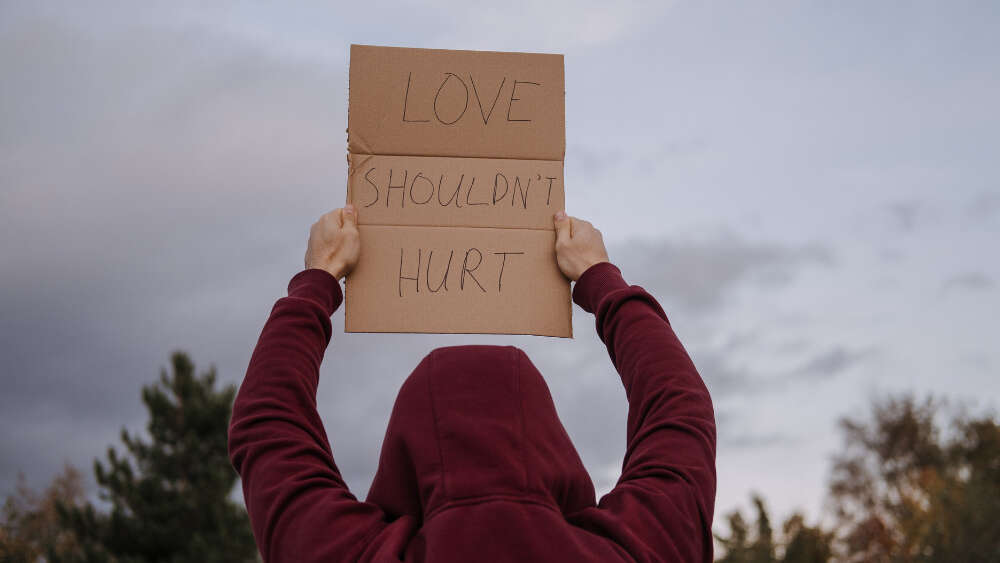A new program for teenagers aimed at stopping domestic abuse before it begins is now being rolled out in youth groups across Australia.
The four-week program “Before it Starts”, created by Youthworks and Anglicare, hopes to “promote respectful relationships in our churches” and therefore prevent the occurrence of domestic abuse.
The program, designed for highschoolers in Years 7–12, is a direct response to the growing number of reports of sexual assault among young women – both in the community and in the church.
“The idea started with a conversation with an assistant minister about the number of young women she was supporting in her church who had experienced sexual assault, and the number of young people who had experiences of abuse or domestic violence in their families,” Lynda Dunstan, Anglicare Sydney’s family and domestic violence advisor, tells Eternity.
“This was echoed in a conversation with the chaplain of the Sydney Anglican Professional Standards Unit, about some difficult situations in youth ministry they have had to respond to – and so [there was] a real desire to help prevent those types of situations occurring for our young people.”
“To really make long term change in the incidence of domestic abuse, we need to also address the underlying beliefs and attitudes that allow abuse to flourish.” – Lynda Dunstan, Anglicare
The program also comes at a time in Australia when at least one in four women and one in 13 men experience domestic abuse by an intimate partner, with one-quarter of Australian children being exposed to domestic violence.
In order to prevent violence against women, the federal government – in its national action plan – has identified the need to educate young people about respectful relationships – “specifically in the context of religious communities”, Dunstan adds.
“We know to really make long term change in the incidence of domestic abuse, we need to also address the underlying beliefs and attitudes that allow abuse to flourish,” she says.
“One area to specifically start to do that is conversations with young people about what a respectful, healthy relationship looks like, and what some of the red flags of unsafe, abusive relationships are.”
The “Before it Starts” program does this from a gospel perspective, beginning with an exploration of the gender stereotypes in society compared to our true identity in Christ.
“Rigid gender stereotypes have been identified as one of the underlying drivers of domestic abuse (amongst others) and these are usually more cultural than biblical, so we encourage participants to reflect on when such views might diminish our views of each other as God’s children,” Dunstan explains.
The program includes Bible studies, videos – including the stories of domestic abuse survivors – as well as activities and games, and all materials are downloadable for free.
“It is loaded with content and a range of activities and scenarios that leaders can use to adapt the program for their specific group. We wanted the program to be as adaptable as possible so that the issue can be addressed in the most appropriate way for each group’s context,” says Dunstan.
“We also want to help young people recognise when coercion and manipulation are happening in their relationships, and how to say no.” – Lynda Dunstan, Anglicare
Over the four weeks, teens learn how to identify different types of domestic abuse, including emotional, physical and sexual abuse, and lesser-known forms of abuse such as spiritual abuse, harassment, bullying and other controlling behaviours.
They are also taught what healthy and unhealthy relationships look like, how to recognise the misuse of power in relationships, and the importance of boundaries and consent.
“There are options given in the program for youth leaders to explore scenarios that look at the issue of consent in sexual interactions that young people are likely to experience. Youth leaders may or may not choose to explore this aspect, but our focus is that all relationships should be safe and respectful,” Dunstan says.
“We want every relationship characterised by serving one another, following the example of Christ, who teaches us not to use power to coerce others. We also want to help young people recognise when coercion and manipulation are happening in their relationships, and how to say no.”
“Before it Starts” is currently being launched to thousands of teenagers attending at the 2021 KYCK conference weekends, run by Katoomba Christian Convention. Dunstan explains her hope for these and many other Australian teens who engage with the program:
“Our goal is to teach and embody the attitudes and practical skills for healthy relationships. As young people traverse many types of relationships in friendships, in dating relationships, and in families, we want to ensure our youth groups are safe places for all. We also want to acknowledge the impacts on young people who are growing up experiencing domestic abuse in their family and to provide them with support.
“We hope the program will also make young people conscious of the warning signs of unhealthy or abusive relationships, and the ability to support and respond well when abuse is disclosed.”
For more information or to download the “Before it Starts” program, visit beforeitstarts.org.au.
Email This Story
Why not send this to a friend?



